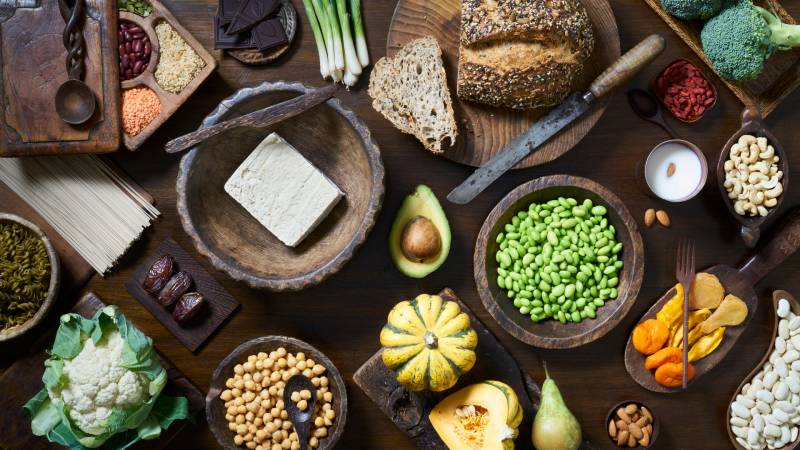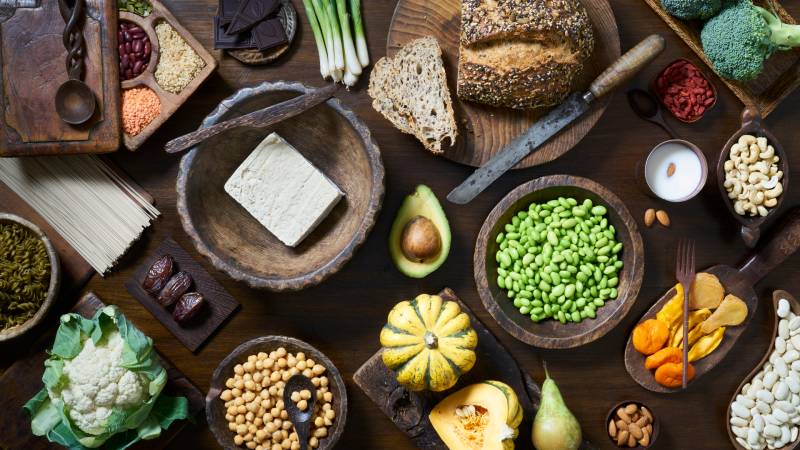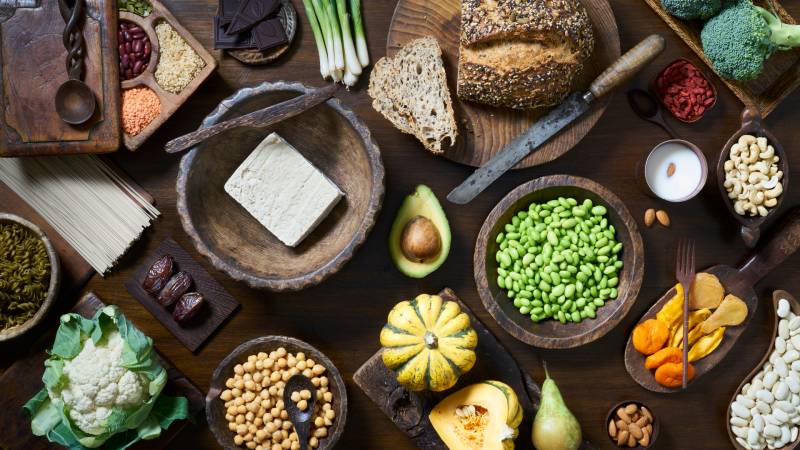A comprehensive “umbrella” analysis of over 20 years of research has revealed that following a vegan, vegetarian, or lacto-ovo vegetarian diet can significantly reduce the overall risk of developing cancer, heart disease, and dying prematurely from cardiovascular disease.

Protective Effects Against Specific Cancers

The study, led by Dr. Angelo Capodici from Scuola Superiore Sant’Anna in Pisa, Italy, found that plant-based diets not only lower cardiovascular risk factors such as blood pressure and cholesterol but also offer a “protective effect” against specific cancers, including liver, colon, pancreas, lung, prostate, bladder, melanoma, kidney, and non-Hodgkin lymphoma.
Importance of Healthy Plant-Based Food Choices

However, the study authors cautioned that the protective nature of these diets could be undermined by poor dietary choices. Dr. Federica Guaraldi, a coauthor of the study, emphasized that consuming unhealthy plant foods such as fruit juices, refined grains, potato chips, and sodas might negate the positive health effects of a plant-based diet.
Other Lifestyle Factors May Influence Results

Researchers acknowledged that people who follow plant-based diets often lead healthier lifestyles, including regular exercise and avoiding sugar-sweetened foods and beverages, refined grains, snacks, alcohol, and tobacco. Dr. David Katz, a specialist in preventive and lifestyle medicine, noted that while some of the observed benefits may be attributable to other lifestyle practices, the overall effect of plant-predominant dietary patterns on crucial health outcomes remains favorable.
Benefits of Plant-Based Diets Even Without Exercise

A November 2023 study on twins by Christopher Gardner, a coauthor of the umbrella analysis, found that healthy twins who ate a vegan diet for eight weeks experienced lower “bad” LDL cholesterol, better blood sugar levels, and greater weight loss compared to their siblings who ate a diet of meat and vegetables. Gardner attributed these benefits to the nutritional boost provided by plants, including high levels of vitamins, minerals, antioxidants, and anti-inflammatory substances, while also reducing the inflammatory impact of meat and processed food.
Diets Included in the Analysis

The umbrella review analyzed 48 meta-analyses that investigated the impact of eating a vegetarian or vegan diet on the development of cancer, cardiovascular disease, and early death. The study included vegan diets that completely excluded meat, poultry, and seafood, as well as lacto-vegetarian, ovo-vegetarian, and lacto-ovo-vegetarian diets. However, vegetarian diets that limited but did not completely exclude certain types of meat and fish, such as pesco- or pollo-vegetarian diets, were excluded from the analysis.
Impact on Cardiovascular Disease, Diabetes, and Inflammation

The review found that plant-based diets reduced the risk of cardiovascular disease, diabetes, and inflammation by positively affecting risk factors such as body mass index, fasting glucose, blood sugar control, and blood pressure measurements. The diets also significantly lowered total cholesterol, LDL cholesterol, and C-reactive protein, an index of inflammation typically higher in cardiovascular and metabolic diseases.
Special Considerations for Plant-Based Diets

While plant-based diets offer numerous health benefits, experts emphasize the importance of carefully optimizing the diet to ensure adequate intake of certain vitamins and minerals that are more easily found and absorbed from meat, dairy, or fish. Vegetarians and vegans may need to supplement their diets with additional sources of B12, calcium, iron, zinc, iodine, and vitamin D to avoid deficiencies. Protein can also be a challenge, but good sources in plants include legumes, nuts, seeds, whole grains, and soy products.
The findings of this umbrella analysis underscore the potential health benefits of adopting a well-planned vegetarian or vegan diet, while also highlighting the importance of making healthy plant-based food choices and considering the need for supplementation to ensure optimal nutrition.
Credit:CNN.com










